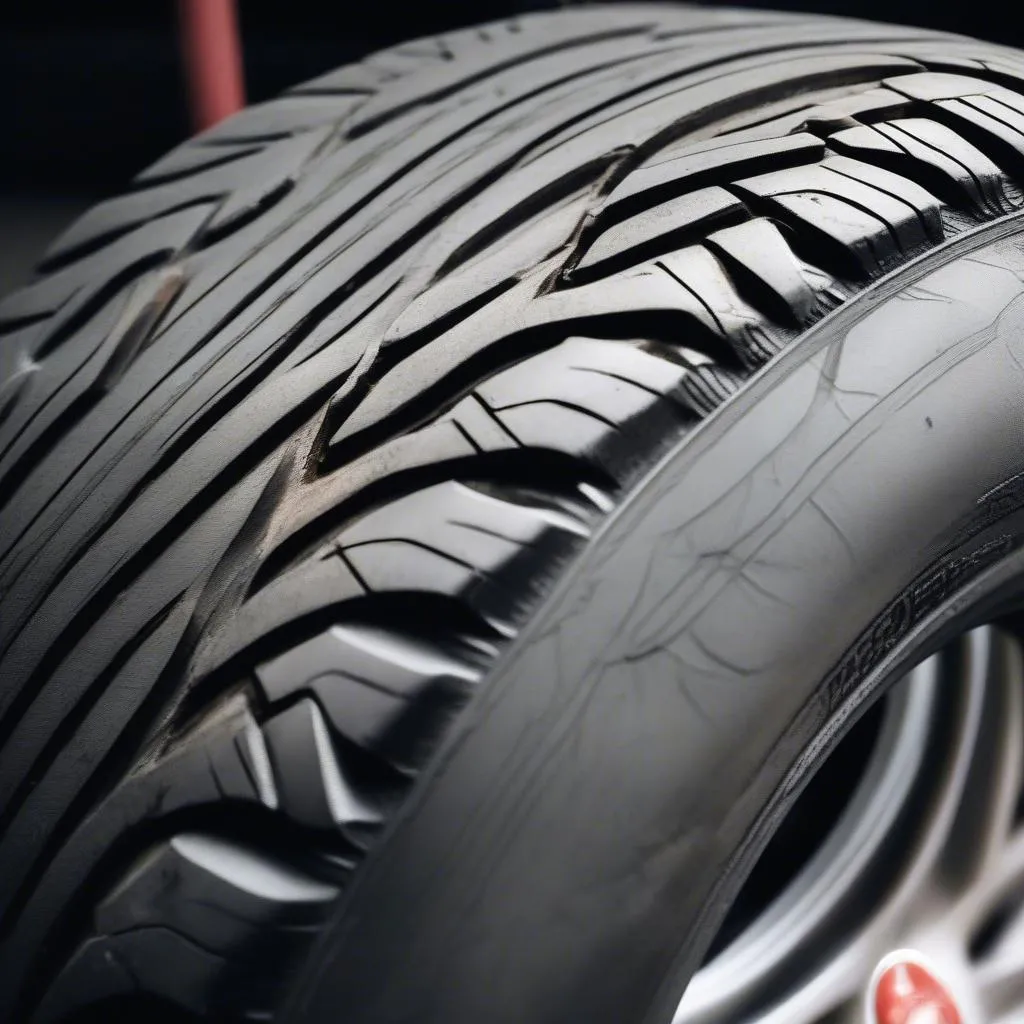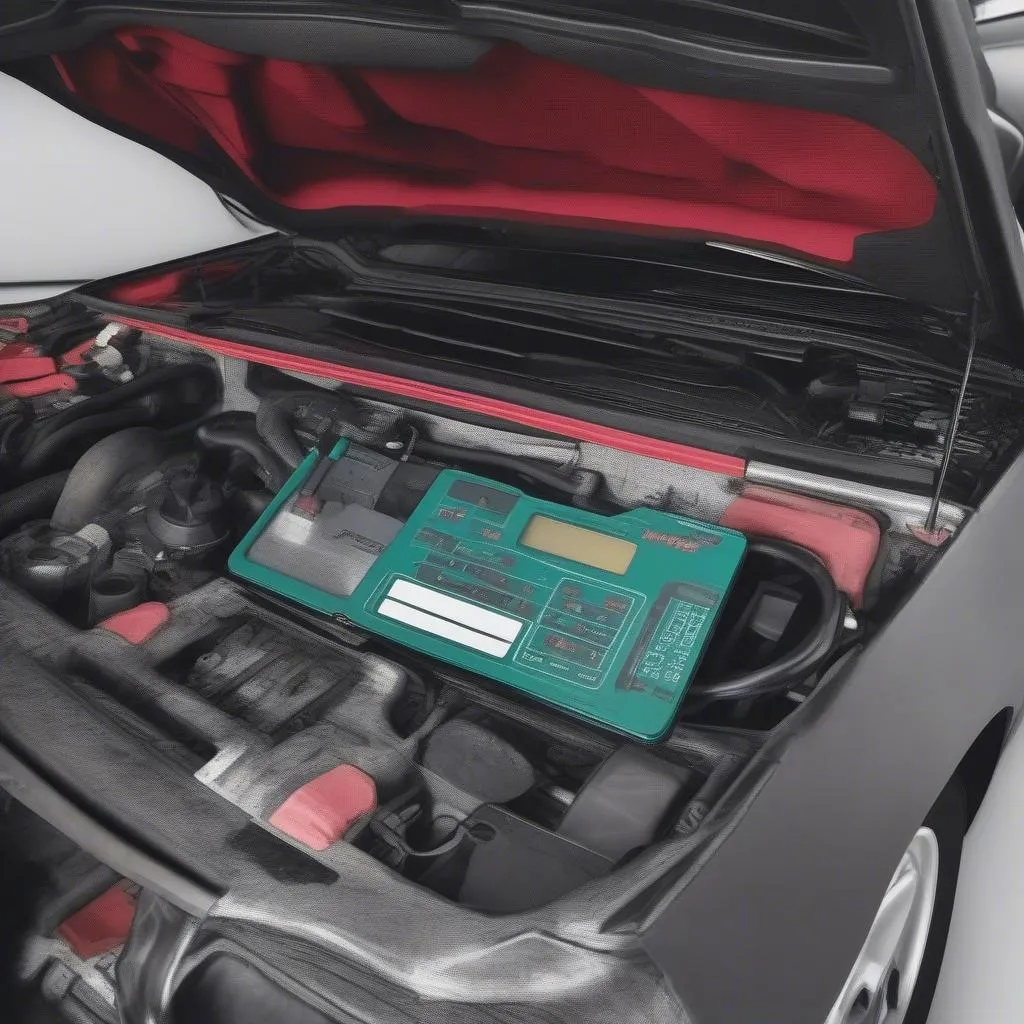You’re driving down the road, enjoying your favorite tunes, and then it happens. The steering wheel starts to shake, and the entire car vibrates, especially when you turn left. It’s an unsettling experience, leaving you wondering if something’s seriously wrong with your car.
What Does It Mean When My Car Vibrates When Turning Left?
A car vibrating when turning left is a common issue, but it can be a symptom of several different problems. Understanding the potential causes can help you troubleshoot the issue efficiently and get your car back on the road smoothly.
Common Causes of Car Vibration When Turning Left
1. Worn-Out Suspension Components:
A common culprit is wear and tear in the suspension system. Components like ball joints, tie rod ends, control arm bushings, and wheel bearings can deteriorate over time, leading to vibration, especially when turning.
2. Uneven Tire Wear:
Imagine driving with mismatched shoes – it wouldn’t feel right, right? Similarly, uneven tire wear can cause vibration, particularly when turning. This can be due to improper alignment, unbalanced tires, or even a worn-out shock absorber.
3. Loose or Damaged Steering Components:
Steering components like the steering rack, tie rods, and steering column can become loose or damaged, leading to excessive play in the steering wheel and causing vibration when turning.
4. Worn-Out CV Joints:
CV joints (Constant Velocity Joints) are crucial for transmitting power from the transmission to the wheels. They can deteriorate over time, causing a clicking noise and vibration when turning.
5. Engine or Transmission Issues:
In some rare cases, the vibration could stem from issues within the engine or transmission. A misfire or a worn-out engine mount could lead to a shaking sensation in the car, particularly during acceleration or turning.
Diagnosing The Problem
1. Get a Visual Inspection:
Look for any obvious signs of damage or wear in the suspension components, steering system, and tires.
2. Check for Leaks:
Inspect for any fluid leaks around the suspension components, steering system, or transmission.
3. Test Drive:
Take your car for a test drive and pay close attention to when and how the vibration occurs.
4. Consult a Professional:
If you’re unable to pinpoint the cause of the vibration, it’s essential to consult with a certified mechanic. They have the expertise and tools to diagnose the problem accurately and recommend the appropriate repairs.
Frequently Asked Questions
Q: How do I know if it’s my tires or the suspension?
A:  Tire Wear If you notice uneven tire wear, it could be a sign of a suspension problem. Worn-out suspension components can cause the car to lean, which can lead to uneven tire wear. However, if the tires are worn out, replacing them might solve the problem. A mechanic can help you determine the root cause.
Tire Wear If you notice uneven tire wear, it could be a sign of a suspension problem. Worn-out suspension components can cause the car to lean, which can lead to uneven tire wear. However, if the tires are worn out, replacing them might solve the problem. A mechanic can help you determine the root cause.
Q: Can I ignore the vibration?
A: While the vibration might seem minor initially, it can worsen over time. Ignoring it could lead to further damage to your suspension or steering system, resulting in a more serious problem and potentially expensive repairs.
Q: How much does it cost to fix a car that vibrates when turning left?
A: The cost of repair can vary depending on the cause of the vibration and the severity of the problem. A simple tire rotation or balancing could cost a few hundred dollars, while replacing a damaged suspension component could cost several thousand dollars.
Looking for More Answers?
Q: What if my car also shakes when starting?
A: You can find answers to this question and other common issues on our website. Engine Shakes When Starting
Q: What if my car vibrates at high speeds?
A: Car Vibrates Over 60
Let’s Fix Your Car
Don’t let that annoying vibration drive you crazy! Contact us via Whatsapp: +84767531508. Our team of experienced automotive experts is available 24/7 to assist you with diagnostics, repairs, and software installation.
 Automotive Diagnostics
Automotive Diagnostics
In Conclusion
A car vibrating when turning left is a common issue, but it’s crucial to address it promptly. Identifying the root cause can help you make informed decisions about repairs, potentially saving you money and preventing further damage. Remember, a professional mechanic can provide accurate diagnosis and reliable solutions to get your car back on the road safely and smoothly.